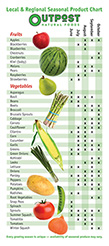Week 35 - Do Try This At Home

Week 35 - Do Try This At Home
A Year of InconvenienceFor one year, I'm making everything from scratch and forgoing convenience foods. Join me on my journey! By Pam Mehnert on January 1, 2011
Many of us have our family holiday traditions that center around baking sweets. I can still remember my great grandmother, who really loved her sweets, introducing me to all of the “old world” traditional goodies that appeared in her kitchen year-round, not just at Christmas. Delectable’s such as German kuchen (or coffee cake as I knew it), strudel, and one of my all time favorites, stollen, were among the bakery discovered by my siblings and I in the shiny metal “bread box” at grandma’s house. I can still feel the weight of the door as it opened up to reveal the sweet fragrance of sugar and spices, as well as I can still hear my grandma calling out, "I heard noise that - what are you kids up to?"
I’ve been working on perfecting my version of great grandma’s Christmas Stollen for the past several years, as my memory insists to me that hers was truly homemade. I’m sure in reality it was purchased from the local bakery or probably day old at the grocery store - but I’ll live with my romantic version of my great grandma toiling away in the kitchen - holiday music on the record player - and me kneeling on the kitchen chair reaching to help her knead the dough or add the sugar icing.
In today’s modern world of baking stollen, the process isn’t at all difficult, although most of the recipes I’ve found don’t include making a sponge or inebriating the fruit in advance. This one doesn’t even require kneading, and if you have a KitchenAid mixer, the mixer does the grunt work. This simply is one of the best stollen recipes I’ve found, and if I do say so, it tastes just like grandma made it.
Merry Christmas everyone!
Ever So Authentic Grandma’s German Stollen
The Fruit Mix
1 ½ to 1 ¾ cups dried fruit
(I like to use dried blueberries, cherries, cranberries and currants. To me, the smaller fruit is better and incorporates well into the bread.)
3-4 tablespoons rum
Mix the fruit and rum in a bowl or jar and cover. Stir the bowl of fruit (or shake the jar of fruit) every 30 minutes or so. I usually wait to use the fruit after it’s been soaking for 2-3 hours. You’ll know it’s ready when the dried fruit is no longer dry and the kitchen smells like you’ve been hitting the bottle all morning.
The Sponge
2 ½ teaspoons dry active yeast
¼ teaspoon granulated sugar
¾ cup warm milk (110-115°)
1 cup all purpose flour
Combine the yeast, sugar and milk in the bowl of your mixer and let stand for about five minutes until the mixture is foamy. If it doesn’t foam, you really need to start over. (Hint: use a kitchen thermometer to make sure your milk isn’t too hot or isn’t too cold. Kinda like Goldilocks.) Add the flour and mix until well incorporated. Cover the bowl tightly with plastic wrap and let it sit for 45 minutes. The sponge should be very bubbly when it’s ready to use.
The Bread
2 cups all purpose flour
½ cup whole wheat pastry flour
1 teaspoon salt
1 stick (8 ounces) unsalted butter, melted and cooled
2 tablespoons salted butter, melted (to use later when you shape the loaves)
2 large eggs, lightly beaten
½ cup granulated sugar
½ cup finely chopped pecans
Add the four, salt, sugar, stick of melted butter, and eggs to the sponge and beat at medium speed with the paddle attachment until incorporated. Switch to the dough hook and add the dried fruit and chopped pecans. Mix at medium speed for about five minutes, until the dough begins pulling away from the sides of the bowl and all of the fruit and nuts are incorporated well. The dough is going to be a little sticky – that’s the way it should feel.
Put the dough into a lightly oiled bowl and turn it to coat. Cover with plastic wrap and a towel, and put it in a warm, draft-free place to rise for about 90 minutes. It will double in size, so make sure you use a large enough bowl.
After 90 minutes, punch down the dough and turn it onto a lightly floured surface. Knead briefly. Divide the dough into two equal balls and roll each ball into an oval, about 1 inch thick. Brush the top of the dough with the melted butter and fold the oval in half, horizontally. Pinch the two sides together, and with the pinched seam at the bottom, shape the loaf to keep the oval shape.
Arrange the two loaves on a well-buttered baking sheet (or Silpat) and cover loosly with plastic wrap and a towel for a second rising (another 90 minutes). Again, make sure you put the pan in a warm but draft-free place. The loaves will again double in size.
The Glaze
2 tablespoons salted butter, melted
2 tablespoons powdered sugar
Heat the oven to 350° with the rack in the middle of the oven. Brush the stolen with the butter and bake until the loaf is a deep golden brown and the bottom sounds hollow when tapped, about 40-50 minutes. Transfer both breads to a cooling rack and when they are completely cool – dust them with the powdered sugar.
* Recipe adapted from the Gourmet Cookbook by Ruth Reichl.
Comments
Bloggers
Archived Columns
Tags
Archives
-
February 2026 (1)
January 2026 (1)
December 2025 (1)
November 2025 (1)
October 2025 (1)
July 2025 (1)
April 2024 (1)
March 2024 (1)
February 2024 (1)
December 2023 (1)
August 2023 (1)
March 2023 (1)
February 2023 (1)
November 2021 (1)
September 2021 (1)
November 2020 (1)
October 2020 (1)
July 2020 (1)
June 2020 (1)
May 2020 (1)
February 2020 (1)
January 2020 (1)
December 2019 (1)
November 2019 (1)
October 2019 (1)
August 2019 (2)
May 2019 (1)
March 2019 (2)
January 2019 (1)
December 2018 (1)
November 2018 (1)
October 2018 (2)
September 2018 (1)
February 2018 (1)
November 2017 (2)
October 2017 (1)
July 2017 (2)
March 2017 (1)
February 2017 (1)
January 2017 (1)
December 2016 (2)
November 2016 (1)
August 2016 (2)
July 2016 (2)
March 2016 (2)
February 2016 (2)
January 2016 (1)
December 2015 (1)
October 2015 (3)
August 2015 (1)
July 2015 (2)
June 2015 (1)
March 2015 (2)
February 2015 (2)
January 2015 (2)
December 2014 (2)
November 2014 (1)
October 2014 (3)
August 2014 (2)
July 2014 (1)
June 2014 (2)
May 2014 (2)
April 2014 (1)
March 2014 (2)
February 2014 (2)
January 2014 (2)
December 2013 (1)
November 2013 (2)
October 2013 (1)
July 2013 (2)
June 2013 (1)
May 2013 (2)
April 2013 (1)
March 2013 (2)
February 2013 (1)
January 2013 (2)
December 2012 (3)
November 2012 (1)
October 2012 (3)
September 2012 (2)
August 2012 (4)
July 2012 (4)
June 2012 (6)
May 2012 (3)
April 2012 (4)
March 2012 (6)
February 2012 (8)
January 2012 (3)
December 2011 (4)
October 2011 (4)
September 2011 (3)
August 2011 (5)
July 2011 (7)
June 2011 (1)
May 2011 (2)
April 2011 (7)
March 2011 (10)
February 2011 (12)
January 2011 (11)
December 2010 (19)
November 2010 (13)
October 2010 (22)
September 2010 (16)
August 2010 (24)
July 2010 (33)
June 2010 (5)
May 2010 (52)
April 2010 (37)
March 2010 (55)
February 2010 (44)
January 2010 (46)
December 2009 (40)
November 2009 (26)
October 2009 (37)
September 2009 (34)
August 2009 (24)
July 2009 (21)
June 2009 (29)
May 2009 (30)
April 2009 (33)
March 2009 (16)
February 2009 (2)
January 2009 (5)
November 2008 (1)
October 2008 (1)
September 2008 (2)
August 2008 (3)
July 2008 (2)
June 2008 (6)
May 2008 (2)
April 2008 (10)
March 2008 (5)
February 2008 (5)
January 2008 (12)
December 2007 (5)
October 2007 (3)
August 2007 (3)
July 2007 (1)
June 2007 (5)
May 2007 (4)
April 2007 (6)
March 2007 (3)
February 2007 (3)
January 2007 (4)
December 2006 (2)
October 2006 (2)
September 2006 (5)
August 2006 (8)
0 (1)










